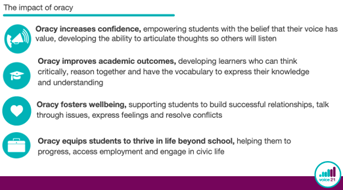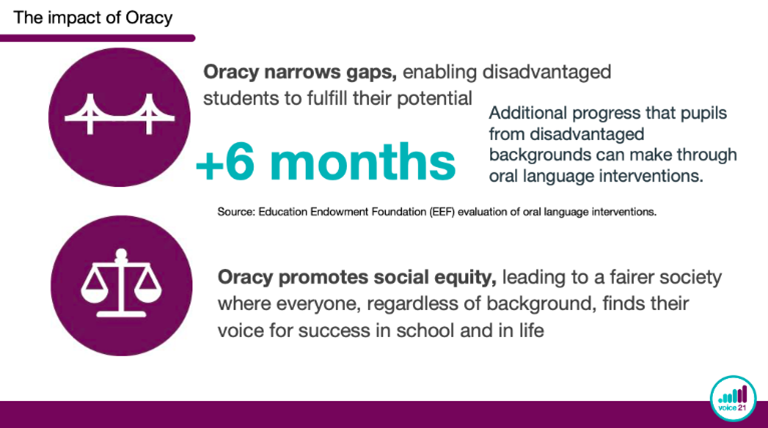Oracy
Intent
The development of oracy is a key ambition at Holy Family Catholic Primary School. We are committed to transforming the teaching and learning of oracy across our school. We aim to ensure that all pupils access and benefit from a high-quality oracy education, enabling them to become confident communicators who can articulate their ideas clearly and coherently.
Oracy provides every child with the opportunity to find their voice, share their thoughts and feelings, and develop a deeper understanding of the views of others. It also supports collaboration and listening, building a respectful and inclusive learning environment.
We believe that effective communication enables every child to flourish, both within school and beyond, regardless of their background. Our approach is underpinned by the Voice 21 Oracy Framework, which is structured around four key strands:
- Physical - voice projection, pace and clarity
- Linguistic - vocabulary and grammar
- Cognitive - content, structure and reasoning
- Social and emotional - confidence, audience awareness and collaboration
These strands inform planning, teaching and learning across the curriculum.
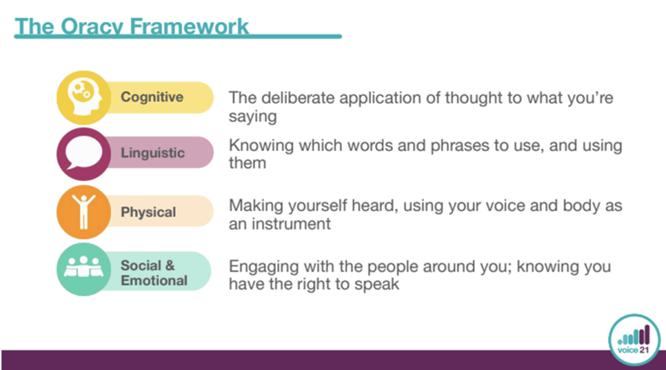
In every classroom, we strive to ensure:
- There are high expectations for oracy
- Every voice is valued
- Oracy is harnessed to elevate learning
- Oracy skills are explicitly taught
Implementation
Every Voice is Valued
At Holy Family, all teaching staff support pupils to participate in and benefit from meaningful talk in the classroom. We listen attentively to children, encouraging them to develop their ideas and to respond respectfully to others. We nurture a culture where every voice is heard and valued.
How do we value every voice at Holy Family?
Children are regularly provided with opportunities to discuss ideas with a partner before contributing to a whole-class discussion. We adopt a no hands up approach, using random selection to ensure all children have an equal opportunity to participate.
Working in pairs, trios and small groups supports collaborative learning and exposes pupils to a range of perspectives. It also helps children to value the contributions of others and to learn from different viewpoints, building mutual respect and communication skills.
One of the most important aspects of valuing every voice is teaching children how to listen effectively. Our Listening Guidelines, based on the four strands of the Voice 21 framework, are displayed and consistently referenced. These guidelines support pupils in becoming active, reflective listeners who respond appropriately and thoughtfully to others.
Oracy is Harnessed to Elevate Learning
In the classroom, oracy is used as both a means of learning and a subject to be learned. Talk is not just encouraged; it is purposefully structured to help pupils build and articulate their understanding.
We recognise that the most effective oracy teaching takes place when pupils are given opportunities to develop their understanding through talk, while also being explicitly taught how to talk effectively.
Through talk, children:
- Clarify their thinking
- Explore new ideas
- Deepen their understanding
- Practise reasoning and explanation
- Engage in meaningful dialogue
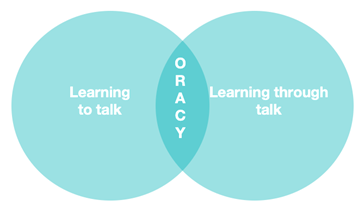
Teachers plan opportunities across the curriculum where oracy can enhance learning. These include debates, presentations, role-play, structured discussions, and exploratory talk. Classroom environments are rich in talk, with vocabulary and sentence stems displayed and used to support learning across subjects.
Oracy Skills Are Explicitly Taught
We understand that confident communication is not innate for all children and that the skills required for meaningful dialogue must be explicitly taught and practised.
Discussion Guidelines
They help children understand the expectations for effective, respectful discussion and collaborative dialogue.
Talk Tactics
We use the Voice 21 Talk Tactics to support and scaffold discussion. These are introduced, modelled, and practised regularly, enabling pupils to take ownership of their talk. Children are taught how to:
- Build - develop, add to or elaborate on ideas
- Challenge - disagree respectfully or present a different viewpoint
- Instigate - introduce a new idea or question
- Clarify - ask questions to check understanding
- Probe - explore ideas more deeply or ask for evidence
- Summarise - recap and highlight key points of discussion
Through deliberate practice and modelling, pupils develop the confidence and fluency to use these strategies in a range of formal and informal contexts.
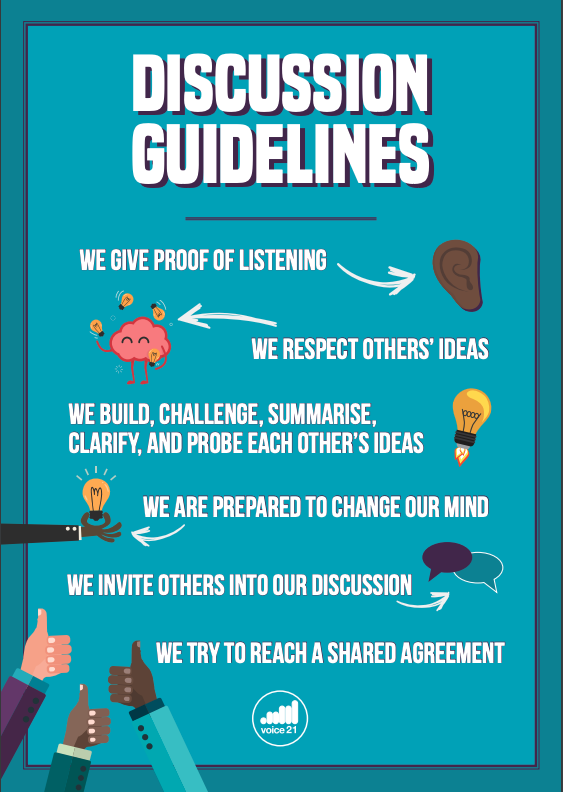
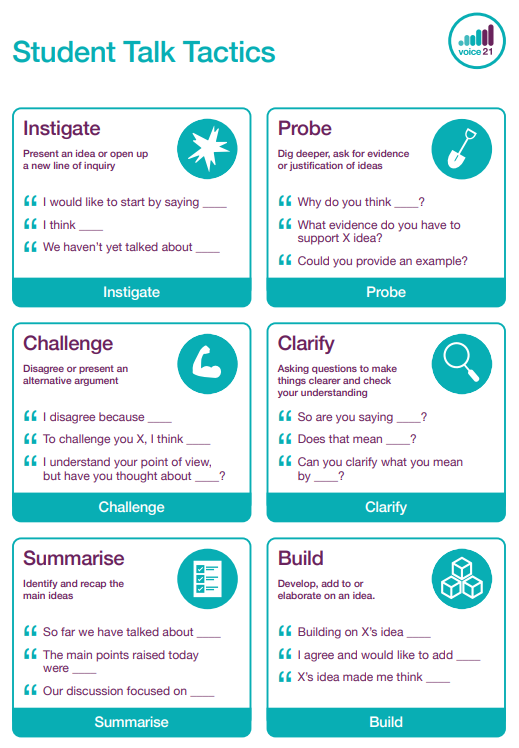
Impact
With oracy as a key driver of our curriculum, pupils at Holy Family are equipped with the language skills they need to express themselves clearly and confidently, both in school and in the wider world. They are able to share their ideas, listen actively, respond respectfully, build on others’ contributions and challenge with kindness.
We aim for every child to leave our school with proficient oracy skills, confident in using language to communicate, reason and reflect. Oracy is essential not only for academic success but also for wellbeing, confidence, employability and active citizenship.
By embedding oracy into the fabric of school life and curriculum design, we prepare our pupils to thrive socially, emotionally and intellectually. We are committed to our oracy journey to ensure that every child at Holy Family has the opportunity to find and use their voice effectively.
